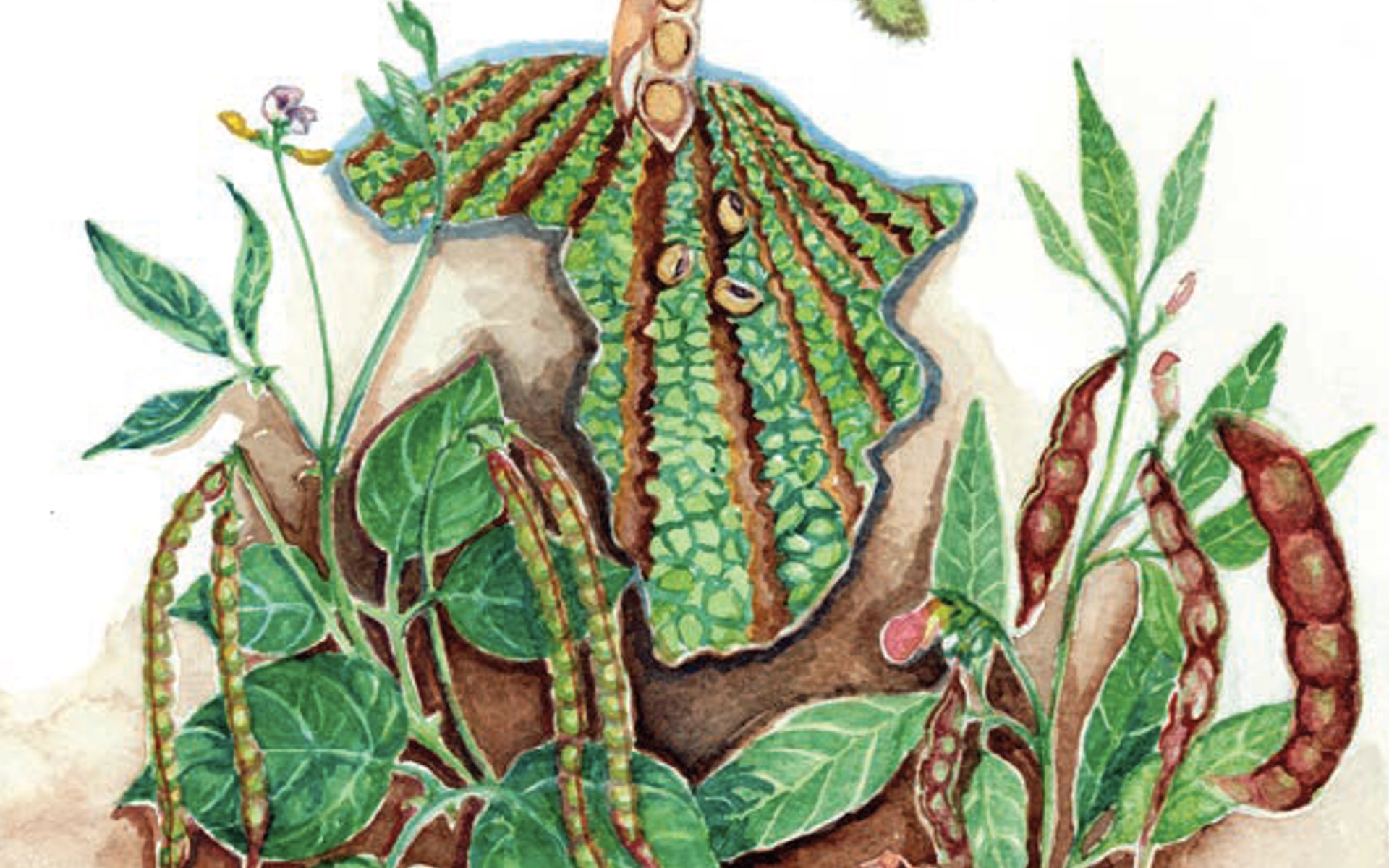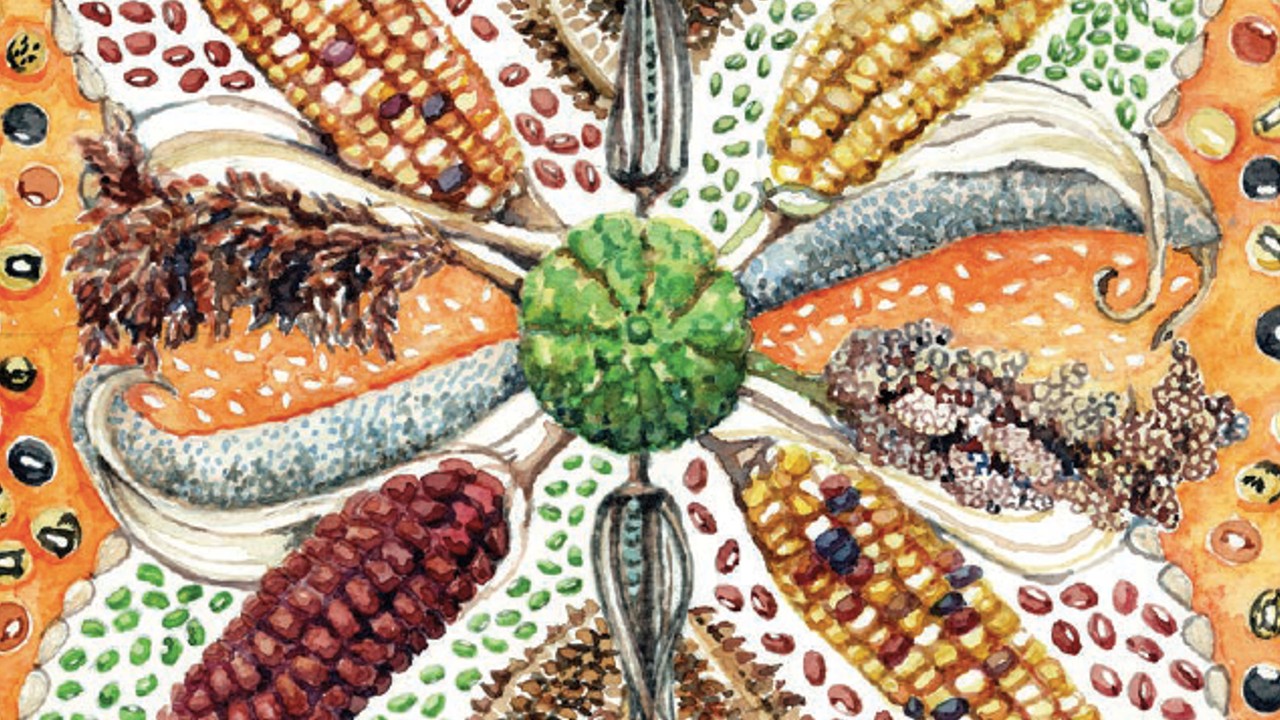Latest Resources

5 October 2016
Farmer-managed seed systems in Dowa, Malawi: A legacy of eroded confidence and agricultural diver...
This report is the product of field work conducted by ACB and Kusamala Institute for Agriculture and Ecology in Dowa district in central Malawi. The objective of the research was to deepen our understanding of the role of farmer seed varieties in smallholder production systems that have come under heavy pressure from concerted Green Revolution […]

16 September 2016
Mapping farmer seed varieties in Manica, Mozambique: initial investigations into agricultural bio...
This scoping exercise to deepen our understanding of the current context of seed use, main crops and varieties in the research localities in order to gather evidence of the ongoing importance of farmer seed systems in the agricultural practices and livelihoods of smallholder farmers, to identify cases of biodiversity loss and to use this information […]

29 August 2016
N2 Africa, the Gates Foundation and Legume commercialisation in Africa
This report considers the N2Africa programme, which aims to develop and distribute improved, certified legume varieties (soya, common bean, groundnut and cow pea); promote and distribute inoculants and synthetic fertiliser; and develop commercial legume markets for smallholder integration in 13 countries in sub-Saharan Africa: Tanzania, Uganda, Ethiopia, Nigeria, Ghana (core countries); Kenya, Rwanda, Democratic Republic […]

1 August 2016
Farmer Managed Seed Systems in Morogoro and Mvomero, Tanzania: The disregarded wealth of smallhol...
In this report by the African Centre for Biodiversity (ACB), in partnership with Mtandao wa Vikundi vya Wakulima Tanzania (MVIWATA) and Sustainable Agriculture Tanzania (SAT), based on field work conducted in Morogoro and Mvomero in 2016. It is a continuation of a research partnership with MVIWATA and SAT started in 2014, which has focused on […]

11 July 2016
Farm Input Subsidy Programmes (FISPs): A Benefit for, or the Betrayal of, SADC’s Small-Scale Farm...
This paper reviews the farm input subsidy programmes (FISPs) within countries belonging to the Southern Africa Development Community (SADC), to ascertain whether input subsidies have benefited small-scale farmers, have increased food security at the household and national levels, and have improved the incomes of small-scale farmers. Download the report.

2 June 2016
Integration of small-scale farmers into formal seed production in South Africa
The scoping report looks at key policies, legislation and programmes in SA with an emphasis on seed laws and considers the implications for small- scale farmer involvement in this sector and outlines a few projects on community seed production, indigenous crops and black- owned private sector seed production efforts.

4 May 2016
Changing Seed and Plant Variety Protection Laws in Tanzania – Implications for Farmer-Manag...
Seed legislation is under review in Tanzania with a view to changing this in order to further expand the role of the private sector in the commercial seed sector. This law reform is mainly targeted at the seed marketing laws (Seed Act of 2003 and its regulations of 2007) and revision of its Plant Breeder’s […]

18 April 2016
Zimbabwean smallholder support at the crossroads: Diminishing returns from Green Revolution seed ...
This scoping report is published jointly by the African Centre for Biodiversity (ACB and the Zimbabwe Small-Scale Organic Farmers’ Forum (ZIMSOFF). The report focuses on government and donor farm input subsidy programmes (FISPs) and seed aid in facilitating the spread of Green Revolution technologies and raises questions about who really benefits from these programmes. It […]

3 April 2016
The chicanery behind GM non-commercial ‘orphan crops’ and rice for Africa
This paper focuses on research and development (R&D) relevant to non-commercial so-called ‘orphan crops’ in Africa—cassava, sorghum, sweet potato, pigeon pea and millet —as well as one commercial crop, rice. This paper should be read in conjunction with work already produced on GM banana (Schnurr, 2014) and GM cowpea (ACB, 2015). These non- commercial crops […]

9 November 2015
Which way forward for Zambia’s smallholder farmers: Green Revolution input subsidies or agroecology?
In this report, we provide a critique of the Green Revolution Farmer Input Subsidy project in Zambia, looking at its impacts particularly for small holder farmers and their seed systems.
